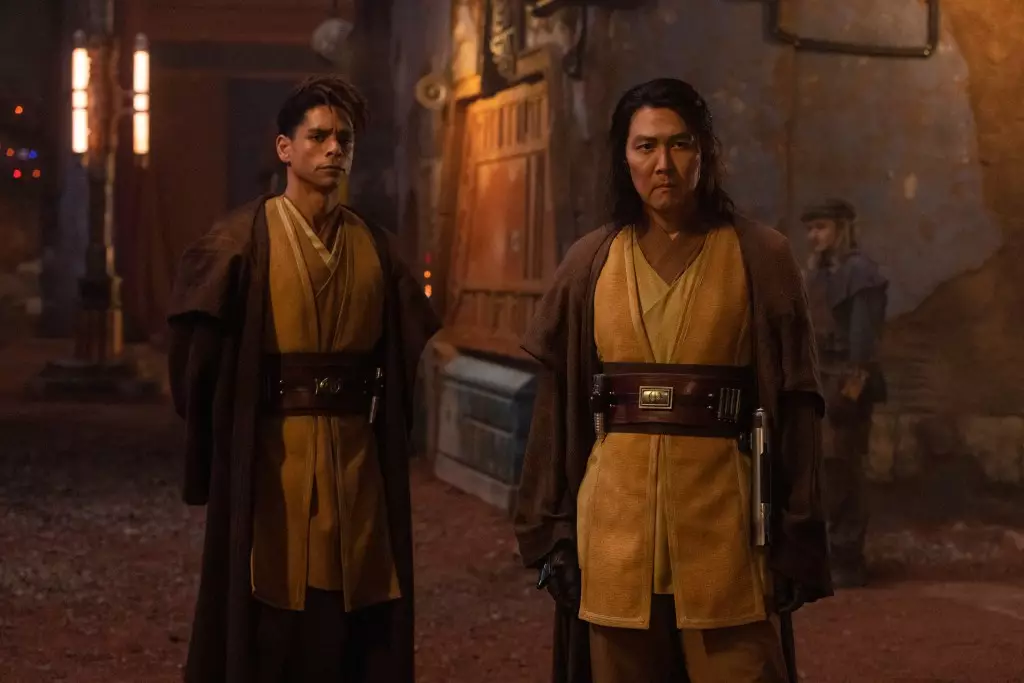Shinfield Studios has recently made headlines by securing a staggering £250 million (approximately $340 million) in financing, signaling its persistent rise as a pivotal player in the global film industry. Nestled in the south of England, this studio has already hosted major projects like “Ghostbusters: Frozen Empire” and the anticipated series “The Acolyte.” As the studio becomes fully operational, it stands as a symbol of the British film industry’s potential to rival its American counterparts. Yet, amid this celebration, it’s essential to critically analyze whether this trend represents progress or an overextension of resources destined for peril.
The Deal that Changes the Game
What does this hefty investment represent? From the perspective of Peter Rumbold, CEO of Shadowbox Studios, the entity behind Shinfield, it signifies a monumental victory that underscores the importance of modern, high-quality film infrastructure. However, one cannot help but ask if the monumental sums of money funneling into studios like Shinfield are indicators of genuine growth, or merely a reaction to the ever-growing appetite for content driven by streaming platforms. With Shadowbox also managing a massive nine-stage facility in Atlanta and a developing site in Australia, one must ponder: is this ambition rooted in sound business practices or mere opportunism?
The idea that our frantic pursuit of cinematic content will only lead to more ephemeral products has merit. In a landscape cluttered with predictable remakes and formulaic series, the race for financing could very well dilute the artistry that storytelling demands. While government incentives and support for local studios are commendable, they might inadvertently facilitate a rush to produce, overshadowing creativity with sheer volume.
Adapting Literature: The Fine Line of Authenticity
Adding to the conversation about creative integrity is the recent announcement by See-Saw Films, which secured the adaptation rights to Emma Forrest’s upcoming novel, “Father Figure.” This endeavor, led by Heartstopper executive producer Patrick Walters, raises crucial questions about fidelity to original narratives. In an age where screen adaptations are plenteous, the saturation of the market with adaptations poses serious ethical dilemmas. Will “Father Figure” retain the enriched layers of Forrest’s storytelling, or will it succumb to the time-worn tropes often displayed in adaptations?
The enthusiasm expressed by Walters is commendable. However, past endeavors have shown that adapting complex narratives without loss of depth can prove challenging. As we enter this wave of literary adaptations, one must remain skeptical about how “Father Figure” will navigate the balance between commercial viability and artistic authenticity. A strong narrative deserves more than a mere cinematic makeover; it deserves reverence and understanding—a challenge that many past adaptations have failed to achieve.
The Changing Face of Investment in the Arts
In an unrelated yet equally significant development, ACF Investment Bank’s move to open a New York office underlines the global interchange of capital flowing into creative projects. Former Lazard banker Jason Rejebian is set to steer this venture, aiming to revitalize mid-market deals for projects that have already made waves, including adaptations flying from the pages of popular culture into the arms of streaming giants. As dazzling as it may appear, the shifting of financial resources into the arts raises profound questions regarding the sustainability of this growth.
Art, much like nature, should be allowed to evolve organically. The risk of commodification through financial intervention threatens to rob creativity of its essence. While investments can fuel innovation, they do so at the potential cost of authenticity. Instead of prioritizing profit margins, perhaps a more inclusive approach to financing that genuinely nurtures the craft could be not only beneficial but essential for preserving the integrity of creative pursuits.
As we witness Shinfield Studios and similar entities flourish under fresh capital, it serves as a moment to reflect on our values as consumers and creators. The responsibility lies not only with studio executives and producers to remain committed to authenticity and quality but also with audiences to demand more than just content. Seeking depth, creativity, and substance should be at the forefront of our cultural production. This dialogue is crucial, as the foundations of art must not be upended by the fleeting allure of finance.


Leave a Reply